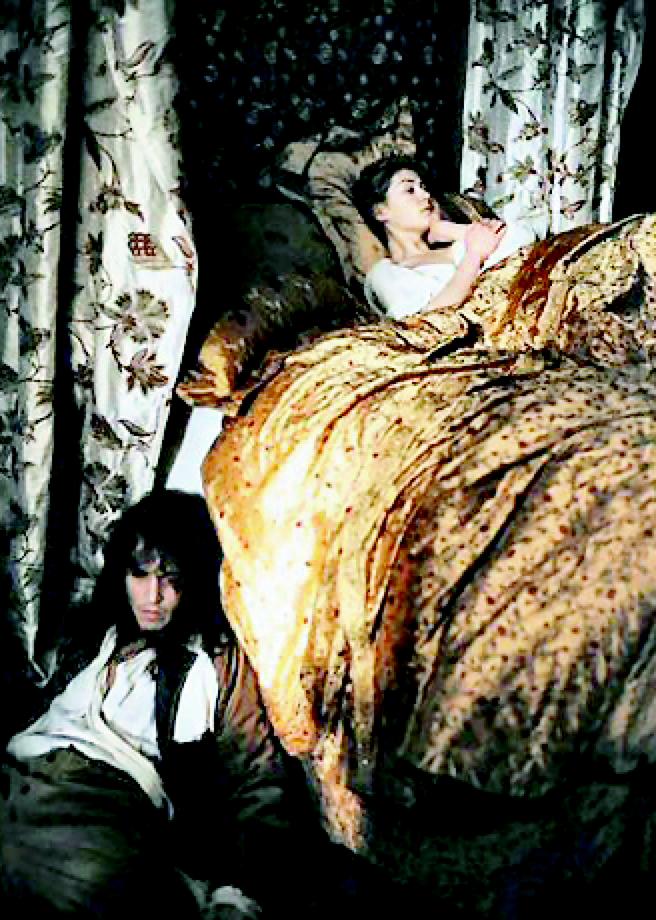Noted British playwright Stephen Jeffreys adapts his stageplay of the same name for first-time director Laurence Dunmore (who, in a particularly poor bit of timing, recently announced plans to direct the feature film version of James Frey's A Million Little Pieces).
The film begins with Depp–playing the notorious Second Earl of Rochester–facing the camera and informing us in no uncertain terms that, “You will not like me.” It's a bold and rather transparent attempt to curry audience favor for the film's bad boy protagonist. Rochester, you see, is a 17th-century poet and playwright with a penchant for expensive wine, cheap whores and formulating rude jokes about the establishment. He's basically Jim Morrison with a waistcoat. (The real life Earl of Rochester, a.k.a. John Wilmot, was also a naval hero, but that particular historical footnote is ignored here.)
Returning from yet another exile in the British countryside, Wilmot is conscripted by King Charles II (here played by a subdued John Malkovich) to pen an aggrandizing play about His Majesty, who has recently reopened London's theaters in the wake of the Puritan crackdown. (Gee, what could possibly go wrong with this little plan?)
Wilmot's new job soon causes him to cross paths with a young actress by the name of Elizabeth Barry (Samantha Morton, Sweet and Lowdown). Though Barry seems singularly untalented, Wilmot makes a bet that he can turn her into the toast of London's theater world in just one season. Here, the film begins to mirror 2004's Stage Beauty (in which Claire Danes played the object of Pygmalion-like transformation). Wilmot teaches Barry the mysteries of method acting (a good two centuries before Konstantin Stanislavski invented it), and in the process starts to fall in love with the strong-willed ingenue. This, of course, does not sit well with the Earl's wife (Rosamund Pike, Pride & Prejudice) nor with his legions of prostitute girlfriends.
With so many characters, social relationships and political comments to get through, The Libertine rather quickly degenerates into a series of loosely connected tableaus alternating between sincere historical drama and drunken, dildo-filled debauchery.
Depp mixes the literary wit of his J.M. Barrie together with the drunken leer of his Captain Jack Sparrow to come up with his nasty nobleman. Depp will undoubtedly get credit in acting heaven for choosing challenging roles, and this one certainly doesn't play up to his sizable Teen Beat fanbase. By the time Wilmot is dying, half his face half-rotted off by syphilis, viewers will be forgiven for agreeing with our protagonist's initial assertion. If only the film had managed to sprinkle a little insight in with all the character crapulence.
As a director, Dunmore does prove he's got the fortitude to stick to his guns. The film is, if nothing else, consistent in its vision. The entire thing is lensed by dim, flickering candlelight–a decision that is as historically accurate as it is visually distressing. Watching The Libertine is an exercise in eyestrain.
In the end, there is something admirable about the noble failure that is The Libertine. It is not the unmitigated disaster that some of the post-film festival buzz had painted it to be. Depp is mesmerizing. The script is sharp. And the directing does bring an air of authenticity to the proceedings. Still, the end results are numbing, enigmatic and very, very grotty (as the British say). The Libertine isn't the sort of film you watch. It's the sort of film you wallow in.



